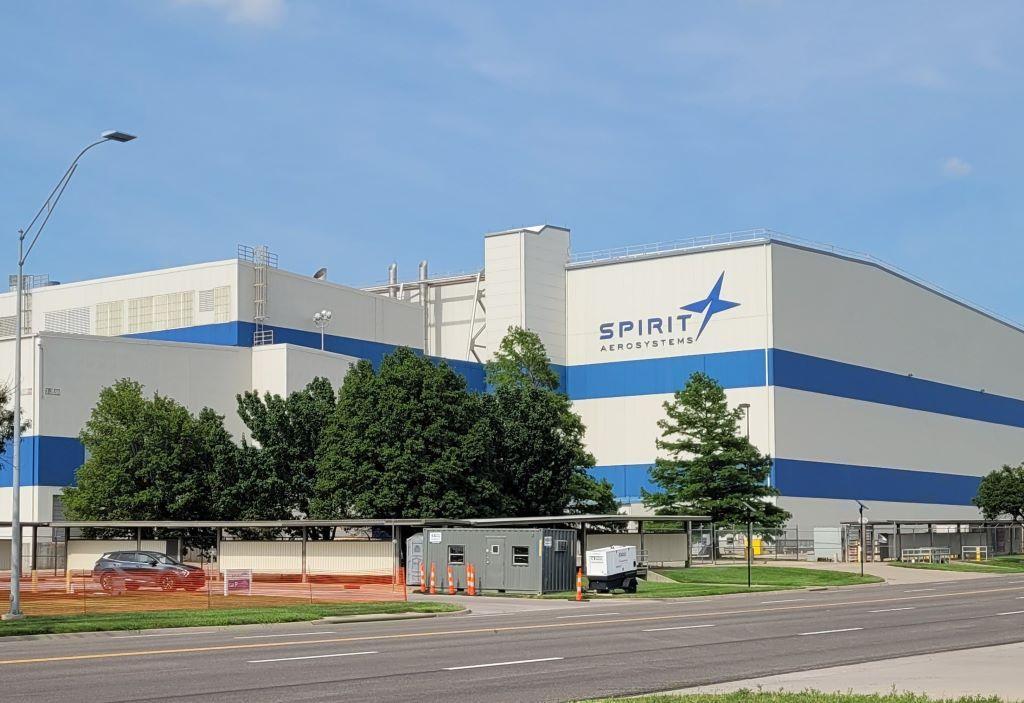Spirit Aero Ousts CEO Gentile, Lures Shanahan To Job Of Fixing Key Supplier

The list of to-do tasks for the surprising new chief executive of leading aerostructures supplier Spirit AeroSystems is clear and daunting: stabilize and increase ship sets for Boeing 737 MAXs, fix other commercial programs, repair investor relations, and figure how to make a major debt repayment looming in 2025.
But Patrick Shanahan could be up to the job, according to financial analysts who reacted to the news Oct. 2 that the veteran Boeing commercial executive was taking over leadership of the Wichita Tier 1 immediately. Now-former CEO and President Tom Gentile, age 58, was replaced Sept. 30 and Shanahan, 61, named interim CEO and president.
“We are uncertain on the ability of the interim CEO to change the near-term execution challenges facing Spirit, but we do believe Gentile had lost substantial credibility with investors and even within the company and industry,” RBC Capital Markets analyst Ken Herbert said. “The focus for Spirit will remain production execution, potential customer contract renegotiations, and then debt refinance.”
Spirit’s board made the move on the last day of the 2023 third quarter—another tough three-month stretch for the critical aerostructures provider, which provides about 70% of the 737 MAX to Boeing. The third quarter included the revelation and fallout of mistakes made in assembling aft pressure bulkheads on the narrowbody. It followed the second quarter when a quality escape on tail fin assembly was announced. There also was a week-long strike in early July by Wichita workers who eventually negotiated a guaranteed annual wage increases up to 34% combined over four years.
Gentile was a GE Capital executive when he left to join Spirit in April 2016. He became CEO and president in August that year following a tumultuous tenure of then-CEO Larry Lawson. His mandate at the time was to secure a new long-term master agreement with uber-important customer Boeing, from which Spirit had spun out in 2005. Gentile also sought to raise Spirit’s investment profile and to diversify revenue toward Airbus work, as well as defense and space manufacturing. This year, Gentile—a regular speaker at Aviation Week events—also is chairman of industry lobbying group Aerospace Industries Association.
But the MAX debacle, the coronavirus pandemic, and continued manufacturing mistakes on several aircraft programs conspired to thwart all of those big plans, so much so that by this summer analysts were describing Spirit as the sick man of industry and in “indentured servitude” to OEMs. Beyond MAX production issues, which stem from select suppliers to Spirit, the aerostructure’s work on Airbus A220, A350, and Boeing 787 programs are in forward loss positions. Corporate debt reaches almost $4 billion, including $1.2 billion due in 2025 in what is a still a rising interest rate environment.
“The path forward is focused on executing on rate ramps, dealing with forward loss contracts, and cleaning up the balance sheet,” Jefferies analysts said.
According to analysts, Shanahan has indicated his key priorities include: 1) boosting Spirit’s production rates; 2) improving supply chain execution; and 3) meeting its customer commitments. “But we assume reaching agreement with Boeing regarding price relief also is a key objective,” Cowen analysts added.
Shanahan “is well regarded and very well-qualified for the job,” the Cowen analysts further said, echoing other analysts. Shanahan spent more than 30 years at Boeing, rising to run Boeing Commercial Aircraft, the division’s supply chain management, and the 787 program. In the Trump administration, Shanahan served as deputy defense secretary, along with a six-month stint as acting defense secretary during Cabinet turnover in the first half of 2019. A potential nomination for Senate-approved permanence reportedly was derailed by an alleged domestic dispute within Shanahan’s family.
Shanahan became a director on Spirit’s board in November 2021. He will keep his board seat but give up roles on the board’s audit and risk committees, according to a regulatory filing. His salary is set at $2 million, compared with Gentile’s $1.3 million. Shanahan also received $8 million in a restricted stock grant. Gentile will get one year of pay from separation, as well as so-called Cobra health coverage and at least $50,000 as retainer for three months consulting for a smooth handover.
Shanahan enters the corner office as interim, and Spirit will undergo a formal search for a permanent CEO. But considering the salary boost, stock award and Shanahan’s credentials and familiarity with Boeing, Cowen analysts said, “it looks like the board considers him a lead candidate for the job if he is interested in accepting it.”
Analysts have said that OEMs, and namely Boeing, cannot allow Spirit to fail as a business. “So, Boeing is apt to be there for additional advances, if needed,” the Cowen analysts said. “But we don’t see Boeing wanting to buy Spirit. Doing so could put upward pressure on wage rates in Wichita, which are lower than in Seattle; and as a large Spirit customer, Airbus could object to a Boeing takeover bid.”
Spirit is scheduled to announce third-quarter financial results Nov. 1.





